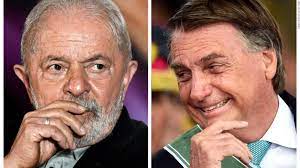
Cuban Dissidents Buoyed in a New Era
Critics of President Obama’s decision to normalize relations with Cuba have accused him of abandoning dissidents on the island, a marginalized group that had been at the heart of American policy toward Havana.
Republican politicians and the editorial pages of The Washington Post and The Wall Street Journal took the White House to task for not inviting dissidents, including the renowned independent journalist Yoani Sánchez, to the flag-raising ceremony at the embassy in Havana on Aug. 14.

Far from feeling snubbed, Ms. Sánchez was enthralled by the events of that day, which she and many leading dissidents saw as the turning point of an era that has emboldened and strengthened Cubans fighting to reform their autocratic government. That morning, Ms. Sánchez published an essay on her news site, 14yMedio, arguing that the Cuban government would no longer be able to blame its neighbor to the north for its failures. “We start a period in which we’ll have to take stock of what we are and recognize why we’ve only come so far,” she wrote.
After a busy morning directing news coverage, Ms. Sánchez went to a ceremony at the residence of the top American diplomat in Havana, where a second flag was raised. The event brought together a cross-section of Havana society, people who seldom come face to face, like dissident leaders and Cubans with close ties to the government.
“People hugged and greeted each other like they were at the baptism of a creature that had a rough, problematic gestation, and has finally come to life,” Ms. Sánchez said in an email. “It’s been many years since I’ve witnessed a moment like that, surrounded by so many happy people.”
Secretary of State John Kerry, who met with a group of dissidents for 30 minutes, left a “profound impression” on them, Ms. Sánchez said, listening carefully to their concerns and brainstorming about ways to expand Internet access on the island.
José Daniel Ferrer, a former political prisoner who is head of the Patriotic Union for Cuba, the largest and most active opposition group on the island, said he was heartened by the meeting with Mr. Kerry, whom he described as realistic and supportive.
“His speech was good and clear,” Mr. Ferrer said, referring to the embassy event. “Many of us are grateful for his remarks, including that the situation in Cuba would improve if we had a genuine democracy.”
In recent months, Cuban authorities have continued to harass, temporarily detain, and slander dissident leaders, Mr. Ferrer said.
“Repression has increased, but not because the new policy is weak and paves the way for that, no,” he said. “Repression has increased because every day there’s more activism and courage and the regime fears it will lose control.”
Mr. Ferrer’s group has put videos on YouTube in recent months showing its leaders delivering aid packages to destitute Cubans and holding meetings. Its organizers have begun to help Cubans get online at new Wi-Fi spots the government set up, costing users $2 per hour.
“There are many people who want to connect but have no idea how,” said Mr. Ferrer. “We suggest sites based on their interests and we tell them about the unlimited possibilities the Internet brings.”
Mr. Kerry’s visit to Havana coincided with a meeting in Puerto Rico of dissident groups and exiles who support political reforms in Cuba, an unprecedented gathering during which they sought to reconcile differing visions of how to achieve economic and political reforms.
Ricardo Armando Roque, one of the exile leaders who attended, said opposition groups remain stymied by old personal grudges, political differences and the absence of a leader. “If Raúl Castro were to say right now, ‘I want to meet with the head of the opposition,’ he’d have to fill up the convention center in Havana,” joked Mr. Roque, who lives in the Dominican Republic.
Mr. Roque said the majority of exile and dissident leaders support the normalization of relations with the United States. Some of the holdouts, he said, oppose it because they fear it legitimizes an authoritarian government, while others do so because they are financially beholden to hard-line Cuban-American exiles and their allies.
“We can’t continue living in the past,” he said. “We have to look back on it to see the mistakes we’ve made.”

